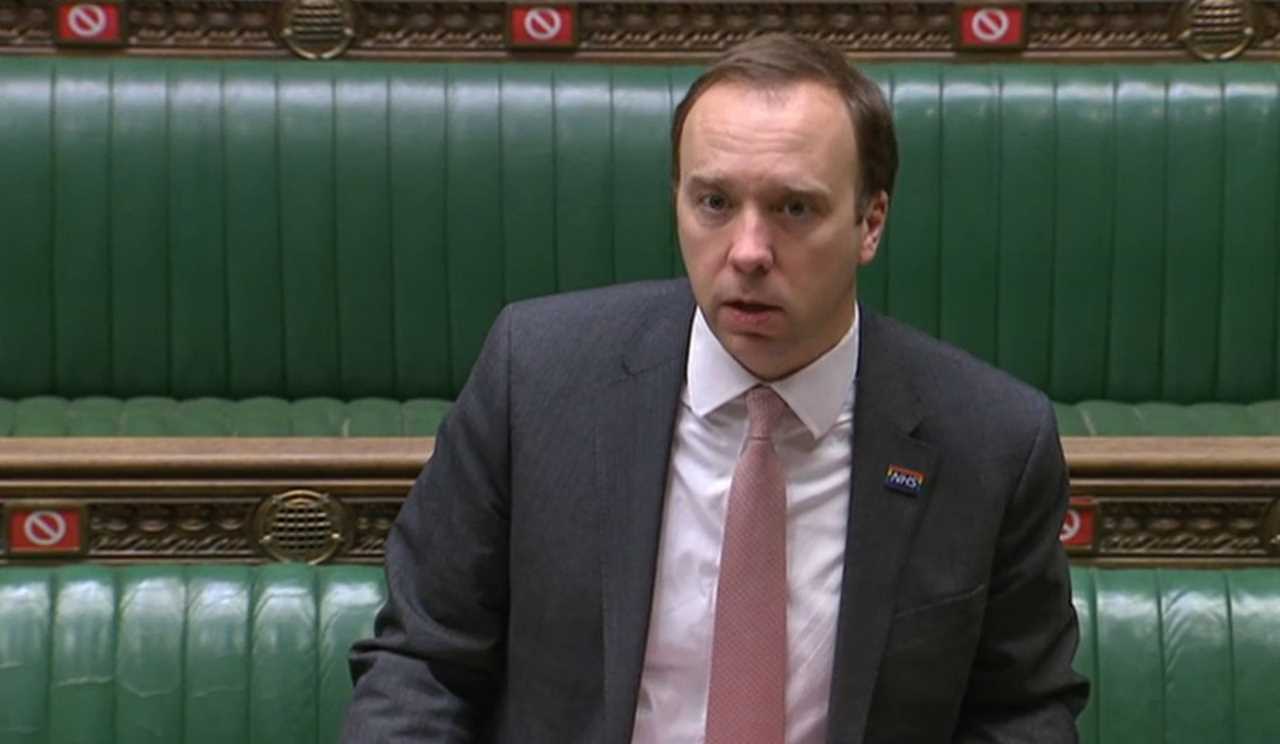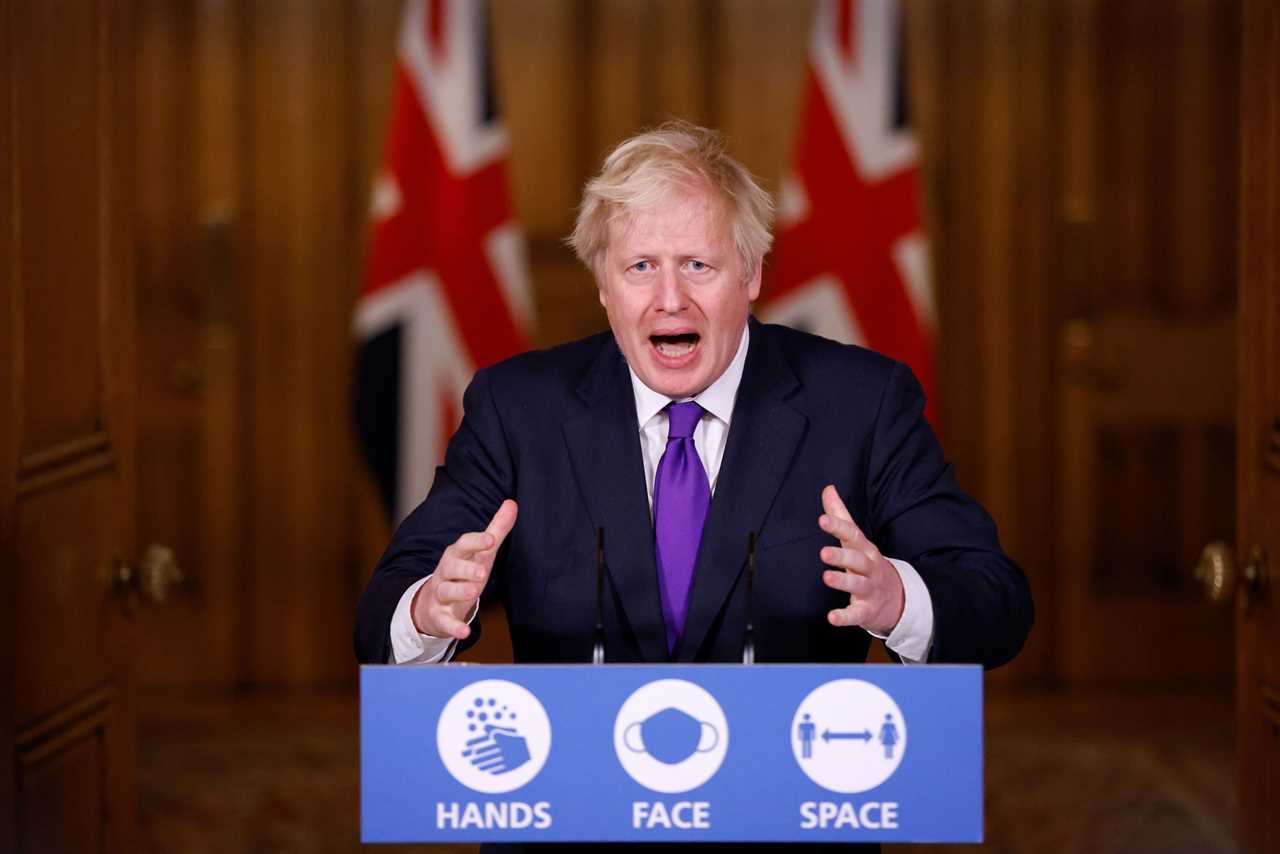ONE in three people with Covid could unknowingly be spreading it this Christmas, it’s been warned.
Known as “silent carriers”, these people will not show symptoms and are dangerous spreaders of the virus.

One in three people with Covid may unknowingly be spread the virus at Christmas (stock)

The Health Secretary Matt Hancock said today: “It’s important to remember that this can be a silent disease”
With millions of Britons set to see their loved ones over Christmas, officials have warned of the extreme risks.
The Health Secretary Matt Hancock reminded people it’s not always clear if someone is infected.
He told the Commons: “One in three people who have the disease has no symptoms but can still pass it on.
“Everyone, therefore, has a personal responsibility to play their part in keeping this pandemic under control.”
Mr Hancock was updating MPs in the Commons on the first shake-up of the tier system, which will be in place around the Christmas period.
He told MPs: “It’s so vital that everyone sticks at it and does the right thing, especially over this Christmas period.
“It’s important to remember that this can be a silent disease.”
Mr Hancock’s comments echo those of the Prime Minister, who warned yesterday the virus will spread “invisibly” this Christmas.
Speaking at the Downing Street press briefing, Boris Johnson said: “One of the most striking features of this virus is that it spreads invisibly from people who don’t even have symptoms, which is around one in three of everyone infected.
“That’s why from the beginning this virus has been so hard to fight. That’s why it’s so important to follow the rules.
“That’s why this Christmas it’s vital that everyone exercises the greatest possible personal responsibility.”

Boris Johnson said last night: “One of the most striking features of this virus is that it spreads invisibly”
People who are silently carrying the virus – known as “asymptomatic” – would still test positive.
But because they aren’t showing signs of the virus, it is highly unlikely they would come forward for a test, therefore continuing to spread the disease as they go about their normal routine.
TAKE EXTRA CARE THIS CHRISTMAS
It underlines the importance of taking extra care this Christmas.
The PM said urged people to be “extremely cautious” over their actions, but has not banned families getting together.
He advised people to minimise their contacts with others “to the lowest possible” for five days before mixing with loved ones at Christmas.
He also recommended against travel from high prevalence areas to those not so badly affected.
And overnight stays are a no-go, because this elongates the time spent with people, and therefore the risk of transmission.
Updated guidance issued by the Government called on people to seriously think about whether they need to form a Christmas bubble or not, especially regarding people over 70 or those who are “clinically extremely vulnerable”.
The statement also stressed the need for ventilation during bubble get-togethers, advising to keep windows open to allow for fresh air.
The World Health Organization has suggested people where face masks at all times during Christmas.
While SAGE – the scientific group that advise the Government – gave advice such as arranging the furniture so different households are always at the opposite end of the room to each other.
MASS TESTING TO FIND SILENT CARRIERS
To combat these “silent carriers”, the Government is scaling up its testing capabilities – and you could get your hands on one.
The areas with the highest number of Covid case are being given thousands of lateral flow tests, which can turnaround a result in under an hour.
Tier 3 areas are prioritised for these tests, with some 67 local authorities already signed up for a first wave of enhanced testing support from November.
More than 1.5 million tests have already been deployed to Tier 3 local authorities, with testing under way in Warwickshire, Darlington in the North East and Medway in the South East.
More than 500,000 tests are also to be immediately deployed to London’s boroughs, which moved into Tier 3 status on Wednesday.
It was announced yesterday areas in Tier 2 at “significant risk” of moving up are now going to be offered the kits.
Local authorities are able to request support for this additional testing for an initial six-week period, the Government said.
Mr Hancock has said the enhanced testing programmes will be a “vital additional tool” in finding asymptomatic cases.
A pilot study in Liverpool showed community testing, which took places in large centres, helped reduce the Covid outbreak.
As of December 7, almost 195,000 residents in Liverpool city and surrounding areas were tested using lateral flow, and 1,219 were positive.
These people may have had no idea they were infected.
The infection rate in Liverpool was slashed from around 700 cases per 100,000 people at the start of October to less than 100 last week. But some of this would have been a result of Covid restrictions.
Caution has been urged about relying too heavily on later flow tests, because they are not as accurate as the typical test you get when you have symptoms, called PCR.
The tests used in Liverpool missed around 51 per cent of all Covid-19 cases, according to preliminary data released on Friday by the Scientific Advisory Group for Emergencies (Sage).
Earlier this month, Dr Susan Hopkins, senior medical adviser to NHS Test and Trace, reassured that those given a negative test result were not being told they did not have the disease on the basis the test was not perfect.
She defended the use of the tests, saying they had helped find Covid-19 infections in people without symptoms that would otherwise have been missed, helping to break chains of transmission.
Experts are looking at how the new technology, which can provide results in under 30 minutes, could be self-administered at home.
Then, they could be used before concerts, sporting events, weddings or other large gatherings.
But this is unlikely to happen for a long time while infection rates are so high and the limited stock is prioritised.









